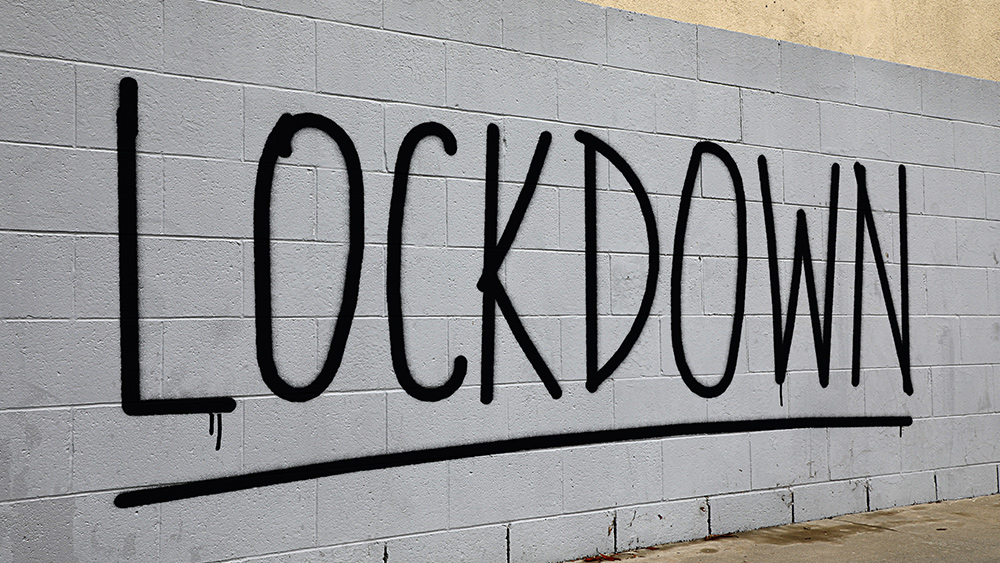
Advertisement
A tsunami of business defaults is already on the way thanks to mass closures of retailers around the country due to the Wuhan coronavirus outbreak.
And what’s bad is that the virus is only going to rapidly accelerate what was already occurring: The demise of the brick-and-mortar businesses that saw their market share collapse thanks to e-tailer giants like Amazon and Walmart.
According to First Day, since June 2015 retail chains have racked up more than $5 billion in total Chapter 11 liabilities in connection with more than 80 bankruptcy filings. The result is that tens of thousands of stores around the country have closed their doors and more were already in the pipeline.
Since June 2015, retail chains have accumulated more than $45 billion in aggregate chapter 11 liabilities in connection with over 80 bankruptcy filings: pic.twitter.com/Q1XO9pSWij
— First Day by Reorg (@ReorgFirstDay) August 20, 2019
As such, notes Zero Hedge, “What has taken place in the retail sector in just the past few weeks is straight out of the 9th circle of hell.”
Cash flows have dwindled and, in most cases, stopped completely as businesses are closing out of necessity (lack of business) or being forced to close by mayors and governors as a means of curbing the virus’ spread.
Those who are still surviving like Mattress Firm and Subway, including other major retail and restaurant chains, are informing landlords they will not be paying rent or will substantially reduce their rent payments in the coming months in response to a tremendous decline in business, Bloomberg News reported.
Already cognizant of the fact that business is tanking and not set to ramp back up possibly even in the short term, chains are, one way or the other, going to either call for rent reductions or are preparing to renegotiate their leases, with changes expected to be put in place as early as next month. (Related: Economist says we can’t let coronavirus kill the economy, urges placing Wall Street profits above human lives.)
As Bloomberg News noted:
Mattress Firm, with about 2,400 stores, sent landlords a letter last week saying it would cut rent in exchange for longer leases and offering two options to do so. This week, it sent a more urgent note revoking its earlier offer.
‘The court system is just going to get flooded with a million of these disputes’
“The decline in revenue and forced store closures across the nation are more drastic, compressed and immediate than we originally anticipated,” the company wrote in a letter seen by Bloomberg. “Our need is now more severe,” the firm added, referring to the virus as a force majeure event that “will prevent or prohibit us” from paying rent.
In addition, Subway Restaurants, which has 20,000 locations in the U.S. alone, sent a letter to landlords last week informing them that the franchise could cut or postpone rental payments because of the virus.
The moves, notes Bloomberg, are marking the next financial fallout phase of the virus: What will happen to the billions of dollars owed in rent for businesses that have been closed?
Zero Hedge’s Tyler Durden notes:
The stakes are high. Retail has a slew of big chains in turnaround mode. And if they do withhold payments, there would be a ripple effect. Landlords can’t afford to stop collecting rent for long, with many property owners sitting on loads of debt.
But what if landlords, by and large, refuse to renegotiate leases and continue to demand payments? It all gets murky at that point, but it seems clear that a wave of defaults are coming if in fact payments can’t be made on buildings that many landlords themselves may not yet even own. That, of course, could turn into another 2008-style banking crisis and eventual collapse.
Not to mention federal courts.
“The court system is just going to get flooded with a million of these disputes between tenants and landlords,” Vince Tibone, an analyst at Green Street Advisors, told Bloomberg. “If the government doesn’t step in, in any form or fashion, it could get ugly. They need to respond quickly.”
Sources include:
Advertisement
Advertisements
















